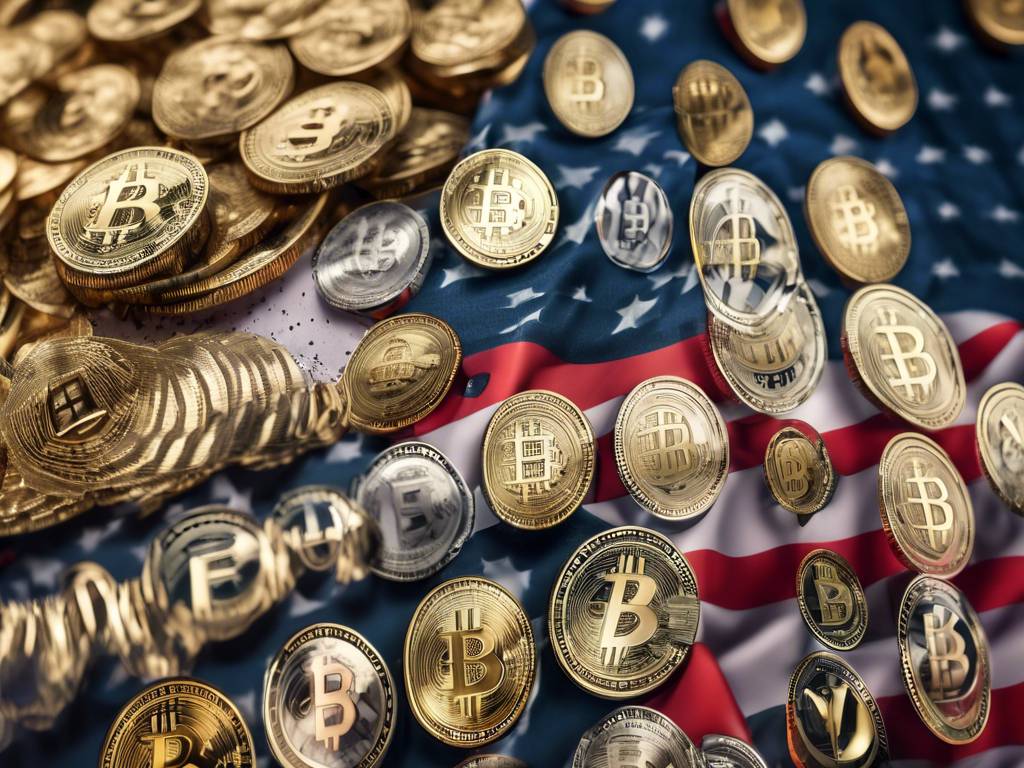Investigation Into Block by Federal Prosecutors for Compliance Failures and Alleged Terrorist Links
An ongoing investigation by federal prosecutors into Block, the financial technology company founded by Twitter co-founder Jack Dorsey, is unfolding due to allegations of compliance failures and potential links to terrorist networks through alleged crypto transactions. The probe was initiated following revelations by a former employee who provided documents to the Southern District of New York, exposing various compliance lapses and questionable practices within the company.
Crypto Transactions Unveiled With Alleged Links to Terrorism
The former employee disclosed that Block’s units, Square and Cash App, exhibited deficiencies in collecting adequate customer information critical for assessing risks. Furthermore, Square processed numerous transactions involving countries under economic sanctions, including Cuba, Iran, Russia, and Venezuela. The documents shared with prosecutors highlighted several “small-dollar transactions” with entities in these sanctioned nations, some occurring as recently as last year.
- Information revealed by a former employee
- Deficiencies in customer information collection
- Transactions involving sanctioned countries
The investigation also raised concerns regarding Block’s processing of crypto transactions for terrorist organizations, casting doubts on the company’s due diligence and compliance protocols. Most of these transactions, whether involving Bitcoin, credit cards, or dollar transfers, were reportedly not reported to the government as mandated. Sadly, the identified compliance breaches were allegedly left unaddressed even after being brought to Block’s attention.
- Crypto transactions for terrorist organizations
- Failure to report transactions to the government
- Issues with compliance practices at Block
Challenges Loom for Jack Dorsey’s Block
When questioned by NBC regarding the investigation, Block defended its compliance program, emphasizing its dedication to adapting to evolving sanctions regulations and emerging threats. The company cited a robust compliance framework encompassing various systems, tools, and processes for sanctions screening and reporting. Moreover, Block revealed that its self-disclosure to the Office of Foreign Assets Control (OFAC) led to a no-action letter, signaling the closure of an investigation without any administrative penalties.
- Block’s response to the ongoing probe
- Commitment to compliance and regulatory standards
- Self-disclosure to OFAC
Regulatory hurdles are not unfamiliar to Jack Dorsey’s company, as evidenced by challenges encountered by Verse Payments Lithuania UAB, the European counterpart of Cash App. Following orders from the Financial Market Supervisory Committee of the Bank of Lithuania, the company had to address identity verification issues linked to its existing clients. Furthermore, the closure of the P2P payment app Verse and the departure of two directors from Block’s board have added to the company’s recent upheavals.
- Regulatory challenges faced by Block
- Issues with identity verification at Verse Payments Lithuania UAB
- Changes in company leadership
Implications of Federal Inquiry on Block’s Operations and Compliance
The federal inquiry into Block raises significant concerns about compliance failures and potential associations with terrorist networks through crypto transactions. The investigation sheds light on Block’s deficiencies in information collection, violations of economic sanctions, and the failure to report suspicious transactions. As the probe unfolds, the repercussions on Block’s operations and regulatory standing remain uncertain. At present, Jack Dorsey has not issued any official statements regarding the matter.
Hot Take: Addressing Compliance Failures and Restoring Trust in Block
The allegations of compliance lapses and potential links to terrorist networks through crypto transactions have placed Block under intense scrutiny. As federal prosecutors delve deeper into the investigation, the company must focus on rectifying compliance shortcomings, enhancing due diligence practices, and rebuilding trust with regulators and users. Block’s ability to navigate these challenges and uphold stringent compliance standards will be crucial in safeguarding its future in the fintech industry.





 By
By


 By
By

 By
By